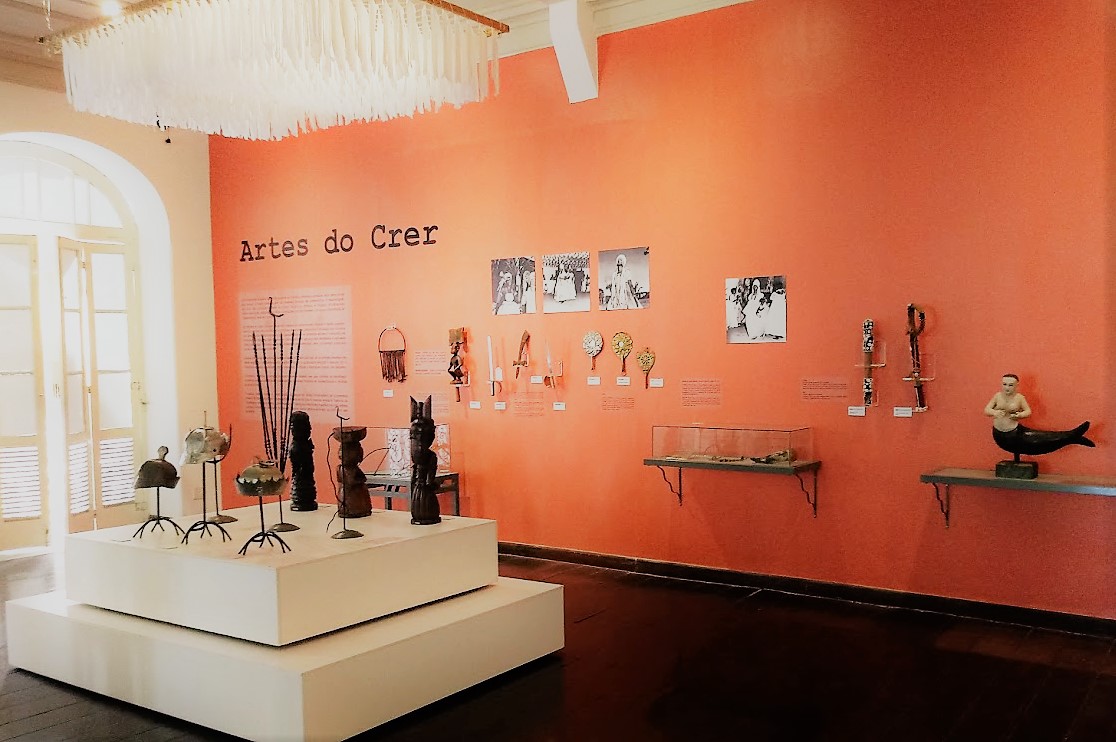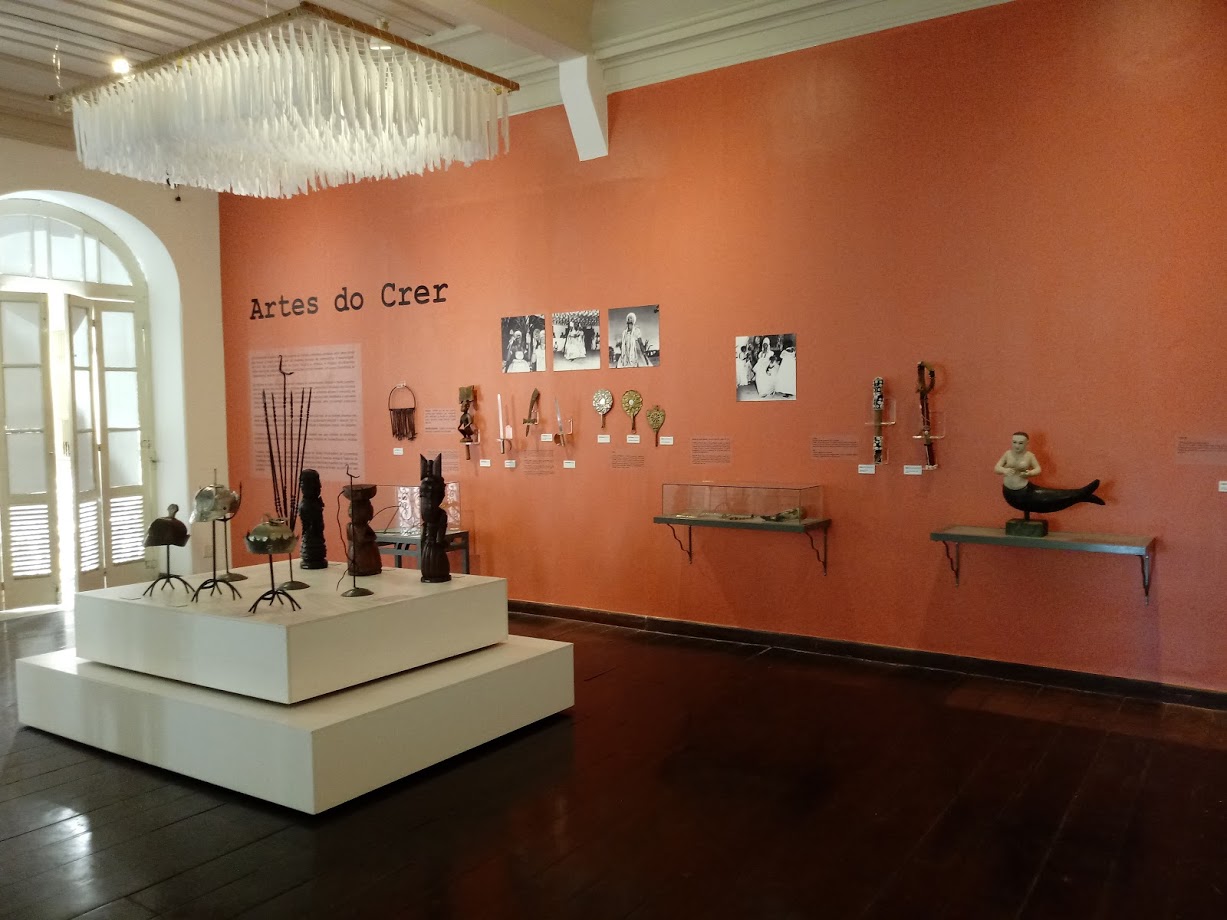A Religião Afro-Brasileira reflete referências originárias da África e produzidas em solo brasileiro, em quadro diversificado de interpretações, sentidos e manifestações.
As religiões de matriz africana apresentam sínteses de conhecimentos, práticas e credos sagrados, trazidos nas memórias de africanos e africanas escravizados, permitindo a articulação de indivíduos em torno de sua memória ancestral e do passado deixado no continente africano e vivenciado nos territórios das diásporas. Nos terreiros de Candomblé foram reconstruídas identidades e retomadas referências sociais, históricas e culturais, ameaçadas pela escravidão, como, por exemplo, a estrutura familiar e a continuidade ancestral.
Deuses, ancestrais de homens e mulheres negros de ontem e de hoje, ao se fazerem presentes nas festas sagradas e no cotidiano afro-brasileiro, reforçam a continuidade temporal e espacial com o continente africano, e colaboram com a reinvenção de Áfricas e identidades negras, nas diásporas.
Divindades humanas e humanos divinizados, que se revelam com seus atributos de identificação baseados em seus arquétipos e suas trajetórias históricas: Histórias de Deuses/Deusas e Histórias da África- Brasil.
Espadas, Leques, Coroas e outros objetos da coleção do Museu Afro-Brasileiro da Universidade Federal da Bahia, traduzem e presentificam trajetórias de lutas e realezas míticas e históricas de Divindades, Homens e Mulheres Afro-Brasileiros. Trajetórias e Memórias presentes nas ruas, práticas culturais e indivíduos, na cidade de Salvador e tantas outras cidades do Brasil, de norte a sul, sem exceções.
Brazilian Religiosity is the result of the meeting of multiple references contributed by the various peoples that make up the Brazilian nation, in a constant process of interpretations and re-elaborations, in a rich material production of a liturgical and artistic nature.
The Afro-Brazilian Religion reflects references originating in Africa and produced on Brazilian soil, in a diverse framework of interpretations, meanings and manifestations.
Religions of African origin present syntheses of knowledge, practices and sacred creeds, brought in the memories of enslaved African men and women, allowing the articulation of individuals around their ancestral memory and the past left on the African continent and experienced in the territories of the diasporas. In the Candomblé terreiros, identities were rebuilt and social, historical and cultural references, threatened by slavery, such as, for example, family structure and ancestral continuity.
Gods, ancestors of black men and women of yesterday and today, by making themselves present at sacred festivals and in Afro-Brazilian daily life, reinforce temporal and spatial continuity with the African continent, and collaborate with the reinvention of Africa and black identities, in the diasporas.
Human deities and deified humans, who reveal themselves with their identifying attributes based on their archetypes and their historical trajectories: Stories of Gods/Goddesses and Stories of Africa-Brazil.
Swords, fans, crowns and other objects from the collection of the Afro-Brazilian Museum of the Federal University of Bahia translate and make present the trajectories of mythical and historical struggles and royalty of Afro-Brazilian Deities, Men and Women. Trajectories and Memories present in the streets, cultural practices and individuals, in the city of Salvador and many other cities in Brazil, from north to south, without exception.



